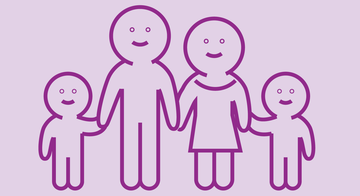Session 3: Family and Harmonious Relationships

- The family is the primary social environment and source of experiences for the child, both because family members or primary caregivers are most in contact with the child. The most salient feature of the family in child rearing is not just the socialization of the child to cultural norms and values, it is also the social and economic resources of the family including parenting skills and education, cultural practices and approaches to intra-familial relations and health status of the family members.
- Children learn moral values and social roles through a process of socialization which occurs in different domains marked by different aspects of the parent-child relationship. Children learn from the family through riddles, songs, proverbs, myths which reinforce customs and family, and community acts like model for expected behaviors.
- There are several members of the family like mother, father, siblings, grandparents and other relatives who play an important role in child development especially in his sense of security, belongingness, social harmony and group coherence which is a stable and fertile environment for the child to grow. The family supports children as they need to have bonding with at least a family member for a feeling of security.
- For a family to function in a healthy manner, there is a need to be effective communication between parents and children. The family need to listen to each other, be open and respect each other, encourage members to express their feelings. Thus qualities of a healthy family relationship are love, trust, honesty, appreciations, patience, caring, mutual respect, endurance, tolerance, protection and safety and help other feel valued and build self-esteem.


Parenting is the process of supporting the physical, emotional, social, and intellectual development of a child from infancy to adulthood.
The responsibility for proper child care and development continues to rest with the parents, however there are social protection and other social support systems to assist them in making informed decisions about quality care for their children.
The purpose of this session is to examine the different family patterns and relationships within the family and impact child development.

- On completing this session, participants will be able to:
- Understand role of family and community in early socialization and child development.
- Describe the different family patterns in the Pakistani context and role of members in child rearing especially the role of the father.
- Have the opportunity to share and gain knowledge on how child bonds and forms attachment with others and the importance of relationships formation during childhood.
- Understand how healthy relationships in the family enhances child development.

Discussions, Role plays

Flip charts, handouts

2 hours
Average Rating: ☆ ☆ ☆ ☆ ☆ (0 reviews)



